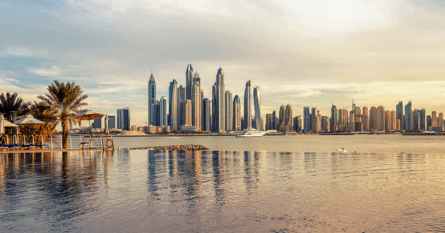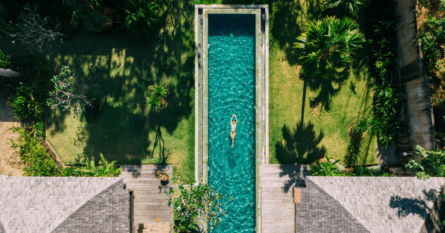Estimated reading time: 6 minutes
On International Women’s Day, it’s important to recognize the significant contributions that women are making in the field of environmental protection and advocacy. Join us as we discover how women are at the heart of the movement to protect the environment.

Sustainability efforts and environmental advocacy are critical issues facing our planet today, and women are playing a crucial role in driving change. From community activists to scientific researchers and policymakers, women are leading efforts to protect and preserve the environment for future generations. The impact of their work extends to various areas, such as climate change, conservation, and sustainable development, demonstrating the breadth of their contributions. In this article, we will explore destinations where women are at the forefront of conservation efforts.
Rwanda
Rwanda is renowned for its gorilla conservation efforts, which have been significantly influenced by the contributions of women. The Dian Fossey Gorilla Fund, a female-led conservation organization, is named after the American primatologist who dedicated her life to gorilla conservation in Rwanda. Dr. Dian Fossey founded the Digit Fund, which later became the Dian Fossey Gorilla Fund International in 1978, to finance anti-poaching patrols and prevent further poaching of mountain gorillas. The fund is a non-profit organization that was named in memory of Fossey’s favorite gorilla, Digit, who was killed by poachers.
Since its inception, the Fossey Fund has been predominantly led by women, including its current CEO, President, and Chief Scientific Officer, Tara Stoinski. Women also make up the majority of the organization’s leadership team, researchers, and trackers.
Effie, a gorilla that Dian Fossey protected and monitored, is one of the most significant gorillas in history. Effie was the dominant female in Pablo’s group, a great mother, and the matriarch of the most successful family line of gorillas known to scientists. Today, Effie has more than 100 descendants, and five of the nine gorilla groups currently monitored by the Fossey Fund are led by an Effie descendant.
The dedication of women like Dian Fossey has inspired a new generation of primatologists, who are continuing the work of protecting and conserving endangered great apes.
Madagascar
Madagascar is an island country located off the coast of East Africa and is home to a vast array of unique plant and animal species. It is considered one of the world’s biodiversity hotspots, with approximately 90% of its wildlife found nowhere else on earth.

Despite its unique biodiversity, Madagascar faces many environmental challenges such as deforestation, illegal logging, and wildlife trafficking. Women have been instrumental in conservation efforts in Madagascar, especially in protecting the country’s endangered lemurs. The Madagascar Biodiversity Partnership is an organization primarily led by women that is dedicated to protecting these primates and their habitats, through research, habitat restoration, and community outreach programs.
The V.O.I.M.M.A. Reserve is another community that highlights the critical role of women in conservation in Madagascar. The reserve means “Local people love the forest” in English and is mainly comprised of women villagers who wanted to take control of their land and participate in ecotourism in the area. Today, 0.4 sq km of primary rainforest belongs to the V.O.I.M.M.A. Reserve area, which remains an untouched paradise for endemic animals and plants.
Kenya
With its vast savannas and diverse wildlife, Kenya is a country that has captured the imagination of travelers and conservationists alike. Women are leading organizations in Kenya’s conservation efforts, including the Maasai Mara Wildlife Conservancies Association, which has played a vital role in the cause. This association is dedicated to protecting wildlife and supporting local communities through sustainable tourism, and their efforts include education and awareness programs, eco-tourism initiatives, and advocacy for women’s rights.
Furthermore, as a country that values the participation of women in conservation, Kenya is also home to the Green Belt Movement, an organization that acknowledges the crucial role of women in conservation. Founded by the late Nobel Peace Prize Laureate, Wangari Maathai, the organization is committed to environmental conservation and sustainable development. With over 50 million trees planted in Kenya, the organization empowers women through education and entrepreneurship programs.
Ecuador
Ecuador boasts an impressive diversity of flora and fauna, from the unique species found in the Amazon rainforest to those found in the Galapagos Islands.
The Galápagos Conservancy is one organization dedicated to the protection and restoration of the Galapagos Islands. It is the only U.S.-based nonprofit that focuses on preserving the diverse life forms of the region. The organization works with partners such as the Galápagos National Park Directorate to engage in on-the-ground conservation efforts. These initiatives and efforts are aimed at protecting endangered species and promoting a sustainable society in the Galapagos Islands.

The organization recognizes the importance of empowering women in local communities to enable them to play a more active role in conservation. By promoting women’s leadership and supporting gender equality, the Galápagos Conservancy aims to create a more sustainable future for the Galapagos Islands.
Canada
Canada has a long history of conservation efforts, with many women leading the way in protecting the country’s wildlife and ecosystems.
One such example is the Canadian Parks and Wilderness Society (CPAWS), a national non-profit organization dedicated to protecting wilderness areas across Canada. CPAWS is led by women, with several female executive directors and board members guiding the organization’s strategic direction. CPAWS has been successful in advocating for the creation of new protected areas, and its campaigns have led to the protection of millions of hectares of wilderness in Canada.
The preservation of old-growth forests in British Columbia is an issue that has been championed by women’s leadership in conservation. One notable organization is the Ancient Forest Alliance, and their efforts to raise awareness of the need to protect these forests have led to significant policy changes in the province.
Women are also contributing significantly to marine conservation in Canada. Oceana Canada is an organization that recognizes the importance of women’s leadership in the field. Women have a prominent presence in Oceana Canada, with many female scientists, campaigners, and advocates among its staff. The organization has made a significant contribution to advocating for the protection of Canada’s oceans, including the establishment of marine protected areas and sustainable fisheries policies.


